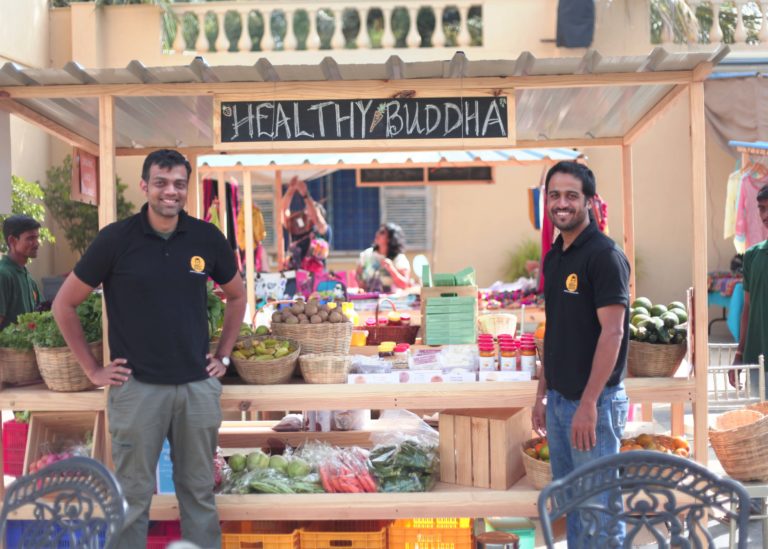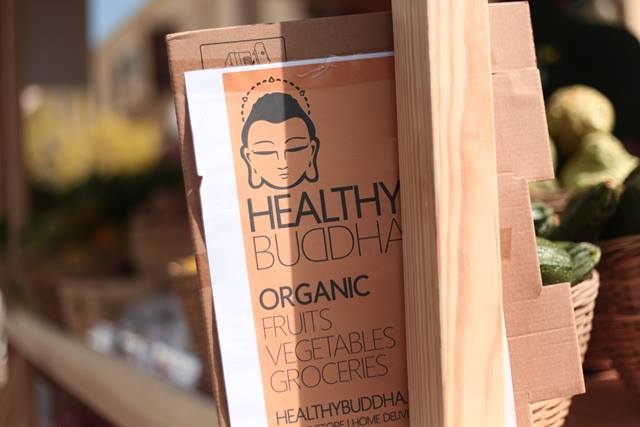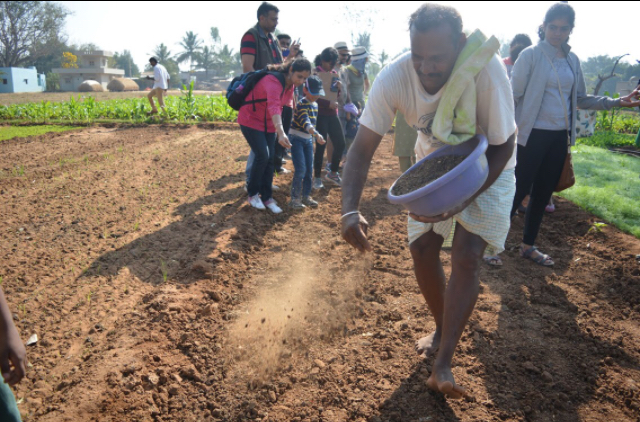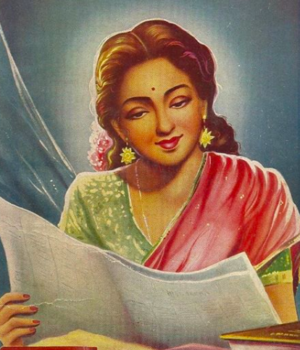
Urban Indians are becoming more and more conscious about the produce they are consuming in their day-to-day lives. They want to buy fruits and vegetables that are eco-friendly, healthy and is grown in a non-toxic environment. And they are willing to go the extra mile and find out whether the products they buy are ethically sourced or not.
Amidst this evolution in urban India’s consumption habits, Healthy Buddha, is trying to supply healthy and fresh organic produce directly to people’s homes.
Healthy Buddha is an e-commerce venture started by two friends Gautham PB and Anurag Dalmia in 2014. We spoke to Gautham to get a better understanding of organic farming methods, why it is vital for Indian farmers to shift to organic methods and how this shift is inevitable.
How was Healthy Buddha conceived?
My father is an organic farmer in Tamil Nadu. As a result of which, I have grown up eating organic fruits and vegetables. As an adult, I noticed that coming across good organic vegetables was difficult and it was expensive. That got us thinking about what we can do to make organic produce more accessible. We felt that people were looking for healthy options but didn’t know whom to trust in terms of organic produce.
And how did you come up with the name?

We wanted the name to stand out. We wanted it to mean ‘health’ and ‘peace’ and Buddha stands for peace to us.
Do you think that the plight faced by farmers in India can be resolved to some extent by farming organically?
Definitely. Most of these problems are exclusive to the non-organic sector. Once you use chemicals in the soil, it gets addicted to them. Then the chemicals eventually get washed away and the farmer has to use them again otherwise the production will go down. This cycle continues. Since, his profit is dependent on market prices, he ends up selling his produce at a loss. This causes a bad debt situation.
Organic markets are price controlled. We have a minimum benchmark below which we don’t buy from a farmer. We use jaggery, cow dung and flour as fertilizers so there is absolutely no dependency on chemicals. As a result, the requirement for loans is eliminated.
In the long term, organic farming is definitely better and a organic farmer is better off than a non-organic farmer.
People have this notion that organically produced food is expensive? Is that true? Why?
It is more expensive than non-organically produced food, yes. To grow anything good costs money. We do try to middle price it. But our produce won’t be as expensive as those from a normal store.
Is there anything about organic farming that people don’t know that you think they should?

There are many misconceptions in general about organic farming. It is not something new. Just that with the Green Revolution, non-organic farming gained momentum.
People also tend to think that the size of organic produce is small and hence, it is unhealthy. But that is not the case. The nutritional factor is dependent on how well you take care of the soil. Organic produce tastes much better than normal produce. You will get the actual flavour of the fruits and vegetables.
How soon do you think that organic produce will be mainstream in India? What are the factors that are hindering that from happening now?
For organic farming to be mainstream, both the consumer and the farmer need to be aware of certain things.
Consumers are getting more familiar with the process and health benefits of chemical-free organic farming. It is slowly picking up.
The farmers are a little hesitant to convert to organic farming. They have gotten used to chemical farming in the last 50 years and are not sure how the organic method will work out for them. They are scared that they will lose productivity and hence, their livelihood will get affected. But in reality they will benefit more. The first few years, they might experience a setback but then yield will pick up eventually and the prices they will get will be much higher. We pay the farmers fair prices, better than what they get in a mandi.
What will be the next step for Healthy Buddha?
We are still consolidating ourselves in Bangalore. We deliver to 80-90% of Bangalore. We recently started operations in Goa. We deliver non-perishables all over in India through Amazon and Big Basket.
Hopefully once Bangalore and Goa operations are stabilized we can start getting into other states in India.
Organic farming will be mainstream inevitably. It is right way of farming; it is giving back to nature. The right way always prevails. It might take 10-25 years to happen, but will happen for sure.
Click here to visit Healthy Buddha’s site, click here to follow them on Facebook.
All images credit: Healthy Buddha
Written by Anmol Akanksha Nayak













